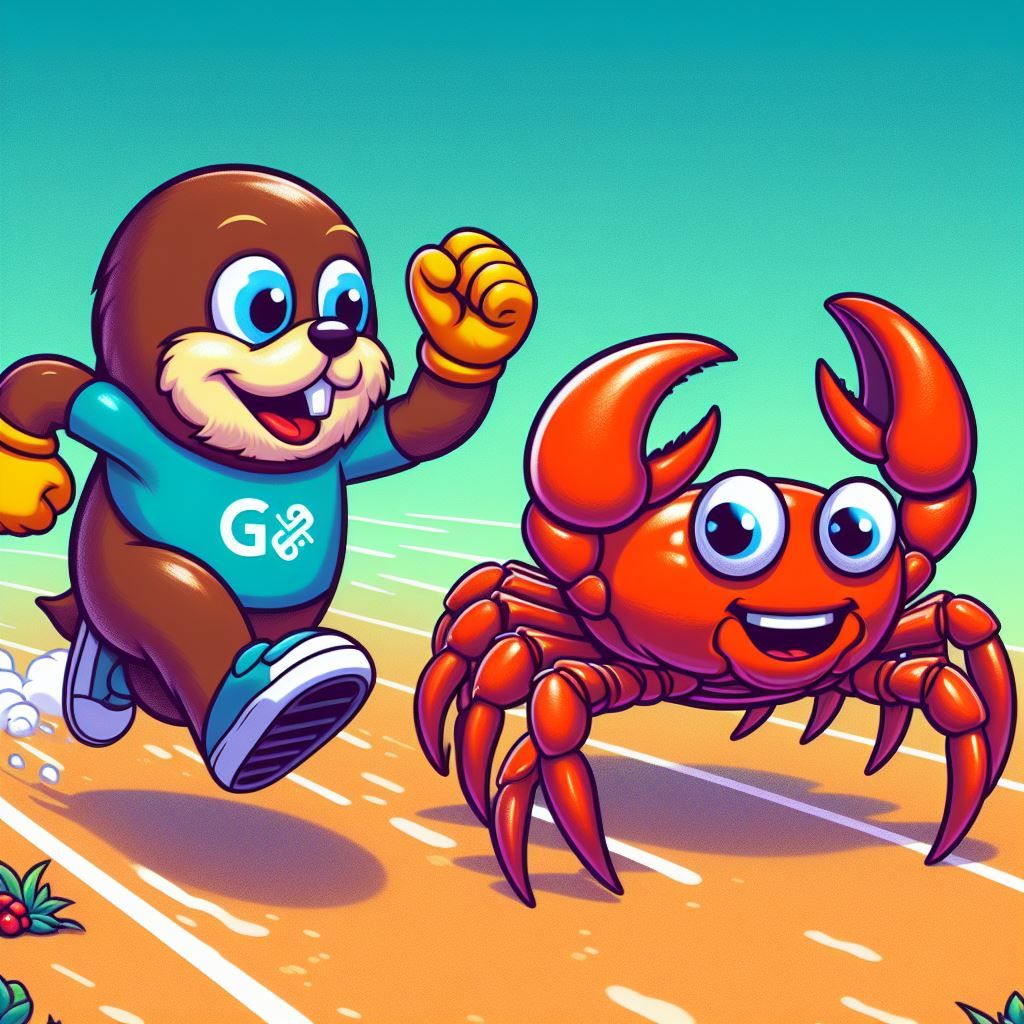A Comprehensive Review: Go vs Rust

In the ever-evolving landscape of programming languages, developers are faced with the perennial dilemma of choosing the right tool for the job. Two languages that have gained significant traction in recent years are Go (also known as Golang) and Rust. In this extensive review, we will delve into the nuances of Go and Rust, examining their design philosophies, performance, safety features, concurrency models, ecosystem, and community support.
Design Philosophy
Go:
Go, developed at Google by Robert Griesemer, Rob Pike, and Ken Thompson, is designed with simplicity and productivity in mind. Its syntax is clean and minimalistic, promoting readability and ease of maintenance. Go's design philosophy revolves around the principle of "less is more," and it aims to eliminate unnecessary complexity.
Rust:
Rust, on the other hand, is a systems programming language created by Mozilla, designed for high performance, reliability, and concurrency. It embraces a more complex syntax but offers a powerful ownership system to ensure memory safety without sacrificing performance. Rust's philosophy is centered on empowering developers to write safe and efficient code.

Performance
Go:
Go prioritizes simplicity and developer productivity over raw performance. While it offers decent performance, especially in terms of concurrent workloads, it might not match the sheer performance capabilities of lower-level languages like C or C++.
Rust:
Rust, with its emphasis on zero-cost abstractions, delivers high-performance applications without sacrificing safety. Its ownership system allows for fine-grained control over memory management, resulting in minimal runtime overhead.
Memory Safety
Go:
Go employs automatic garbage collection, relieving developers from managing memory manually. While this contributes to ease of use, it may introduce latency in certain scenarios. Go's memory safety is robust, but the garbage collector can be a trade-off in performance-critical applications.
Rust:
Rust takes a different approach with its ownership system and borrow checker, ensuring memory safety at compile-time. This eliminates the need for garbage collection and provides a high level of control over memory allocation. Rust's ownership model prevents common issues like null pointer dereferences and data races.
Concurrency Model
Go:
Go excels in concurrent programming with goroutines and channels. Goroutines are lightweight threads, and channels provide a safe way for them to communicate. This makes it easy for developers to write concurrent code without the complexity of traditional threading models.
Rust:
Rust's concurrency model is based on ownership and borrowing, leveraging the concept of ownership to manage mutable state across threads. While it requires a steeper learning curve compared to Go's concurrency model, it provides fine-grained control over concurrent access to data, reducing the risk of race conditions.
Ecosystem
Go:
Go boasts a robust standard library and a growing ecosystem of third-party packages. Its simplicity and ease of integration have led to the development of numerous tools and libraries, making it a strong choice for web development, microservices, and networking applications.
Rust:
Rust's ecosystem is rapidly expanding, with a package manager called Cargo that simplifies dependency management. While not as extensive as some other languages, Rust's ecosystem is well-supported and growing, particularly in domains like systems programming, embedded development, and performance-critical applications.
Community Support
Go:
Go has a large and vibrant community, driven by its adoption in cloud-native development, containerization, and distributed systems. The Go community emphasizes collaboration, and the language's simplicity attracts developers from various backgrounds.
Rust:
Rust has garnered a passionate community, driven by the language's focus on safety and performance. The community actively contributes to the development of the language and promotes best practices. Rust's forums, documentation, and community events reflect a strong commitment to knowledge sharing and support.
Wrap Up
In the Go vs Rust debate, the choice ultimately depends on the specific requirements of the project and the preferences of the development team. Go is an excellent choice for projects demanding simplicity, rapid development, and scalability, particularly in cloud environments. Rust, with its emphasis on safety and performance, shines in systems programming, embedded development, and scenarios where low-level control is crucial.
Both languages have unique strengths, and the decision should be based on the priorities of the project, the development team's expertise, and the desired balance between simplicity and control. Whether you lean towards Go's simplicity or Rust's performance, both languages contribute significantly to the diverse and dynamic landscape of modern programming.